Chocolate
The first one you see on our list is probably one that is of more common knowledge. Any dog owner would know (or at least we hope they do) that giving chocolate to a dog is a big mistake. While chocolate might be absolutely delicious, it can be very harmful to your pooch.


The issue with chocolate is theobromine, a toxic component that humans can metabolize but that dogs can only do so on a much slower pace. The fact that they do it so slowly means that their system allows for the toxic levels of theobromine to build up. This eventually leads to several issues such as dehydration, severe agitation, and muscle tremors. Even worse; if a dog eats chocolate, it runs the possibility of death.
Avocado
While your favorite breakfast or lunch might be an avocado toast, or maybe you just love throwing in some chopped avocado into your salad, you better not be giving any avocado pieces to your dog. The issue with avocados is that they contain persin, a fungicidal toxin.
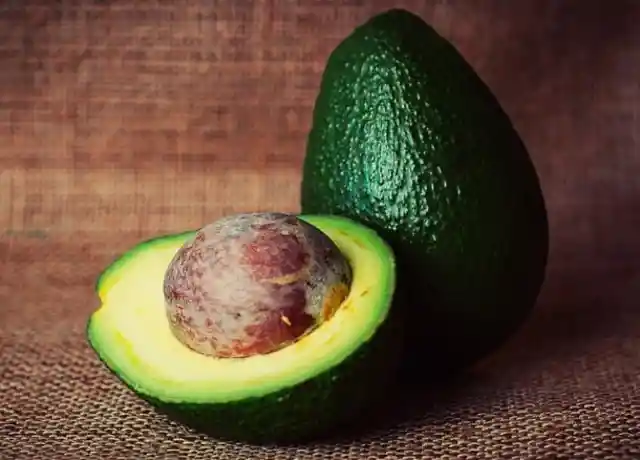
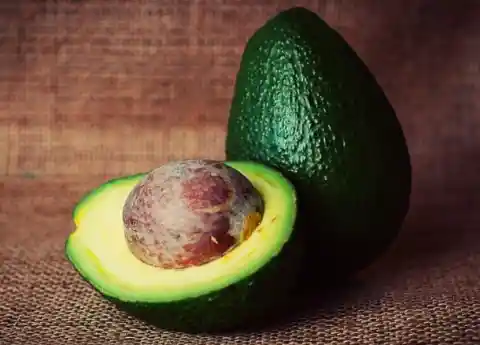
This isn't an issue for humans because the levels of the toxin are quite low in avocados. But for dogs, a tiny amount of persin can cause them to have an upset stomach, trouble breathing, and also fluid buildup. Even worse, if your dog swallows the pit of an avocado, you won't be dealing with just an upset stomach, but something much worse.
Alcohol
This one is fairly obvious too. We all know what alcohol does to our body system, and while you might enjoy the buzz you get from your choice of ethanol, your dog won't be enjoying that buzz at all. It doesn't matter if it's vodka, tequila, beer or whiskey, alcohol is out of bounds for your pooch.


It only takes a little bit of alcohol for it to have severe detrimental effects on your dog. With a tiny dose of it, you might find your pet with severe diarrhea, depression, coordination issues, breathing problems, and so much more. So please keep your Friday night booze far out of reach for your canine.
Onions
Unless you absolutely hate cooking, you probably are familiar with the basic cooking step of sautéing some diced onions in some oil or butter. This step can take a dish to a whole other level. But it can also take your dog to another not so good level, whether the onions are cooked or not.
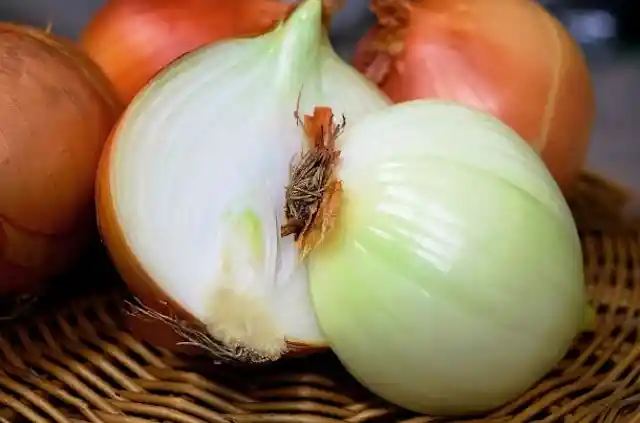
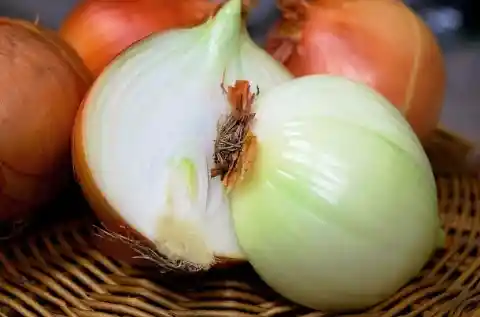
The issue with onions is that it only takes a little bit of it for your dog to be poisoned upon consumption. With as little as 15 to 30 g/kg of onion, your dog could undergo some severe hematological changes. Known as onion toxicity, this issue is best avoided by never serving your dogs any onion. By doing so, you are preventing your dog from getting hemolytic anemia, a disorder that involves red blood cells being destroyed faster than they are made.
Milk
Whether you add it to your coffee or to your tea or you actually enjoy drinking it by itself, milk is an extremely common liquid that humans enjoy consuming. However, just because we add it to so many things, doesn't mean that it is also safe for our fellow dogs to have it.


Milk contains lactose, something that most dogs cannot digest because they lack the enzyme lactase, which has the ability to break down lactose. While puppies surely drink milk when they are born, they aren't meant to keep drinking it as they grow into adult dogs
Coffee
"I can't function without coffee" is probably a very common statement for somebody that is either in college or busy working that 9-5 job. Well, the exact opposite happens to be true for dogs. They cannot function with coffee. Yes, it might smell delicious and it might give you just that kick you need to get your day started but please keep caffeine out of your dog's reach.


Dogs are extremely sensitive to caffeine. While some coffee won’t necessarily pose a great threat to your pooch, eating the coffee grounds is what is actually lethal, particularly in small dogs. Issues related to eating coffee grounds include tremors, vomiting, hyperactivity, and seizures.
Cheese
Yet another dairy product that humans can't seem to live without, cheese is a bad idea for your dog. It doesn't matter if its Gorgonzola, Mozzarella, Parmesan or Camembert, you better not be serving a slice of this French delicacy to your dog. No matter how good it smells, period.
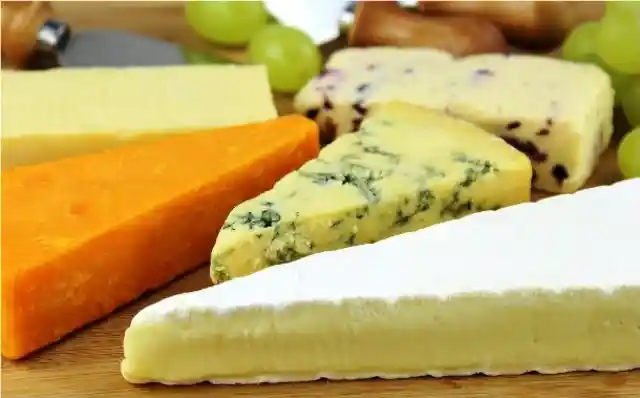

While definitely not deadly, a higher quantity of cheese can make your dog’s stomach very upset. Symptoms such as diarrhea, constipation, flatulence, and excessive bloating are common after a dog eats a little too much of this delicacy. Breaking down lactose just isn't what your dog was meant to do!
Bacon
Ah, the all-time favorite of the Americans: Bacon. We just love frying this up in the pan and eating it alongside some scrambled or sunny-side-up eggs with a slice of toast on the side. But still, while you're gobbling down your breakfast favorite, you probably know that bacon isn't the healthiest thing out there for you, and it also isn't the best thing for your dog.


While dogs love bacon, the extremely high-fat content that bacon carries can easily cause digestion problems for your pooch. This, in turn, leads to canine pancreatitis. Don't worry though, this only applies to meat products that are very rich in fat. Lean meats shouldn't cause this problem.
Macadamia Nuts
Have you ever heard of white chocolate chip macadamia cookies? They are absolutely scrumptious but a huge no-no for your dog. "White chocolate" should have been enough for you to know that those cookies should stay high up in the cookie jar. But even this healthy nut is out of bounds for your dog.


Dogs can get macadamia toxicity if they consume this harmless looking nut that is flooding with essential nutrients such as iron, magnesium, and manganese. The toxicity can lead them to a very weak state, which then translates into hind limb paralysis. Just after 12 hours of consumption, a dog can become paralyzed on its hind legs.
Chewing Gum
When you feel like you have bad breath and you don't necessarily have some toothpaste and a toothbrush in your proximity, the first thing you do is probably get some chewing gum. While your dog's breath probably doesn't smell like a field of flowers, please don't ever think that giving them gum is a good idea. It's actually a terrible one.


Most gums out there are sugarless, which means that they have xylitol, a lethal sweetener for dogs. The rush of insulin that is caused by the seemingly harmless sugar alcohol can lead to their blood sugar dropping dangerously low, thus causing a coma, and also death.
Grapes
They pair up great with some strong cheese, they are the ones we thank for red wine, and they are the ones you should be keeping away from your dog. Grapes might be nature's candy for us but for dogs they can cause kidney failure. This applies to fresh as well as dried grapes, aka raisins.


While the cause of kidney failure by the consumption of grapes or raisins isn't all that clear, we do know that 33% of the dogs are affected by it. So if you find yourself munching on some grapes and then your dog looks at you with big adoring eyes, don't give in because just a few of these are enough to create serious complications.
Garlic
If you didn't know that chopping up some onions added great flavor to your savory dishes, then you probably knew that garlic has that same magical effect. But we better not see you giving this magical ingredient to your dog because that would cause devastating outcomes.
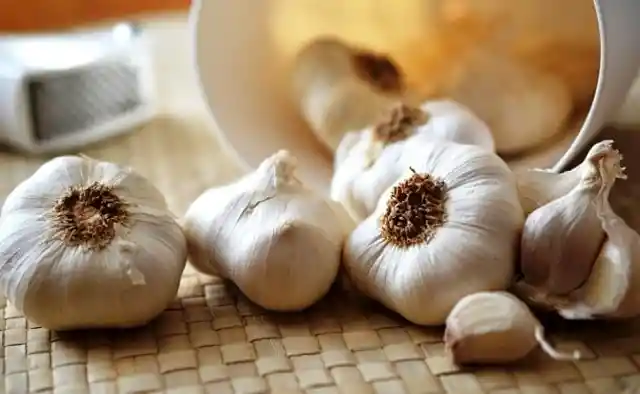

The issue with garlic is that it can cause garlic poisoning, which makes red blood cells more prone to breaking. They can also cause dogs gastroenteritis (severe stomach pain accompanied by drooling, vomiting, and diarrhea). Garlic poisoning can also cause weakness, quickened heart and respiratory rate, and pale gums.
Apples
"An apple a day keeps the doctor at bay" is what they say. But when it comes to dogs, "An apple a day and you're all day in bed" suits better. While apple flesh is good for your dog if served in moderated doses, apple seeds are extremely poisonous not just for your dog but also for yourself.
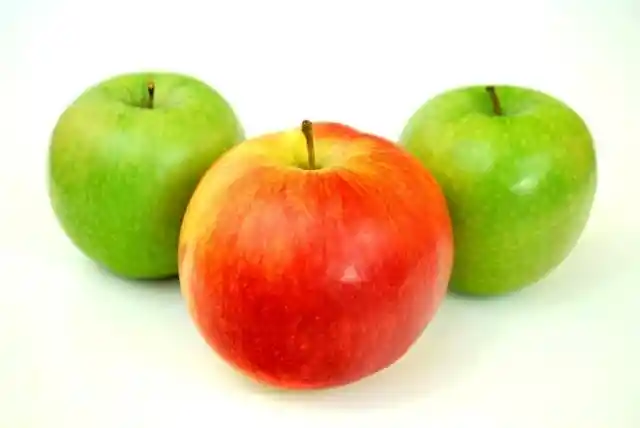
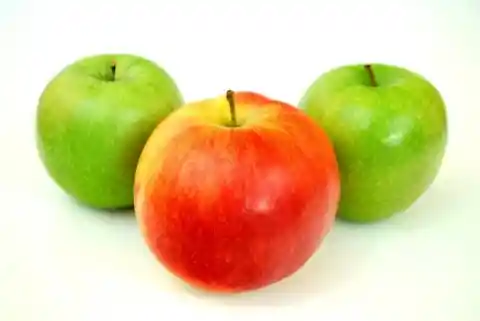
Apple seeds contain amygdalin, which is a form of cyanide that has the ability to stop your blood from carrying oxygen. While we know not to swallow apple seeds, the same cannot be said for your dog, which probably just chews on whatever you give it without a second thought. If your dog accidentally swallows an apple seed you can relax, but if it's more than just a few, you might want to take it to the vet.
Bread Dough
While baked plain bread is generally safe to give to your dog, never contemplate the idea of giving them raw bread dough. Just as you wouldn't eat it (at least we hope you wouldn't), your dog shouldn't be eating it either. Unbaked dough can be highly poisonous to your dog because it has the ability to expand once it finds its way into his warm stomach.


The expansion of the dough can actually lead to a bloated stomach, which can turn into a twisted stomach (an overstretched and rotated stomach caused by excessive gas content). Furthermore, since the unbaked dough is fermented, it can release carbon dioxide as well as alcohol, which can find its way into your dog’s bloodstream and cause alcohol poisoning.
Ice Cream
Extremely heavy on their stomachs, ice cream is definitely a human treat that should never find its way to your dog's tummy. Laden with yolks and cream, this creamy delicacy is a bomb for your canine friend. Ice cream contains lactose and many dogs struggle to digest this properly.


The high amounts of sugar and layers of cream are just another reason why you shouldn’t be feeding ice cream to your dog. High amounts of sugar are likely to give your dog teeth problems as well as obesity. Having a bigger amount of ice cream can go as far as giving your pooch diabetes.
Candy
While eating candy might give you some toothaches, it probably won't kill you unless you have an unreasonable amount of it. The same cannot be said for dogs, who happen to be quite sensitive to sugar. Even if the candy is sugar-free and has been sweetened with artificial ingredients, your dog should be staying away from it.
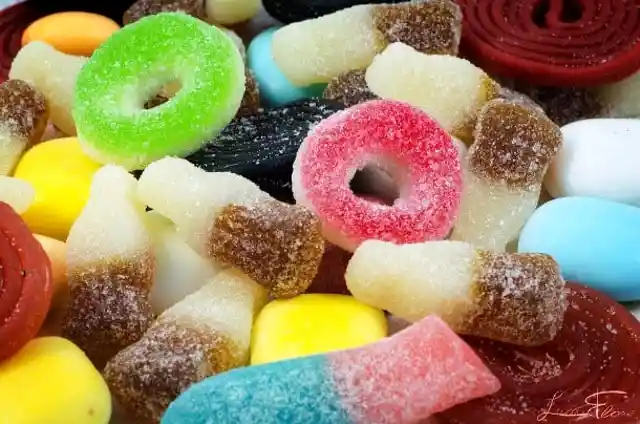

We all know that sugar is generally bad for us, especially the sugar contained in candy. This same sugar can cause your dog obesity and can also deteriorate their teeth. The issue with “sugar-free” products is that they tend to contain xylitol, which is toxic to dogs because they stimulate them to release insulin, thus causing a huge drop in blood sugar.
Bones
Probably one of the most unexpected items on this list, bones are not safe for dogs to consume. This is because dogs aren't carnivores but rather omnivores, like us! This means that their digestive systems aren't adapted for bone-eating. So please, avoid feeding bones to your dogs!


Thousands of dogs end up in the emergency room every year because they’ve eaten a bone. Half-chewed pieces of bones can get stuck in the dog’s throat or digestive tract, which can then lead to serious complications, injuries, and potentially death. Your dog might love them but if you love your dog, best keep those bones in the trash can!
Peaches
Much like apples, peaches are another delicious and nutritious food for human beings that isn't the best option for your dog. While they are sweet and juicy and filled with nutrients, peaches have the ability to cause intestinal obstruction in your dog. Not only is this terrible but also extremely painful.


Peaches also contain cyanide-making compounds within their pits, meaning your body and your pup’s body can convert them into the lethal chemical compound cyanide. Since your dog probably doesn’t know that it shouldn’t try to chew on the pit, keeping peaches (and plums and apricots) away from your pooch is the best option.
Marijuana Edibles
While peaches and apples might be deceiving because they are actually good for human consumption, the same cannot be said for marijuana edibles (well, there are probably a few of you out there that disagree with this statement). Regardless, you should keep marijuana edibles out of your dog's reach.


Dogs don’t react to the tetrahydrocannabinol (THC) found in cannabis the way we humans do. Instead of getting high, dogs can actually go into a severe coma that then results in death. To make matters worse, if the edible contains something like chocolate or raisins, we can assure you that edible will be your dog’s doom.
Raw Eggs
Sure, eggs are commonly known as a great source of protein for humans, but if you ever want to give your dog some eggs, make sure they are thoroughly cooked. Raw eggs pose the threat of food poisoning. Ever heard of the famous bacteria Salmonella or E.coli? You definitely don't want those inside your dog.


Sure, raw eggs are filled with some essential vitamins, but serving eggs in their raw form isn’t worth the risk. If Salmonella wasn’t enough to persuade you, you should know that enzymes found in raw eggs can interfere with the absorption of one type of vitamin B.
Raw Meat
You probably thought that since dogs' ancestors ate uncooked meat, then giving your dog a piece of raw steak was a good and harmless idea. However, while this might make sense in terms of raw meat being void of salt, sugar, and unhealthy additives, giving your dog raw meat has several risks.
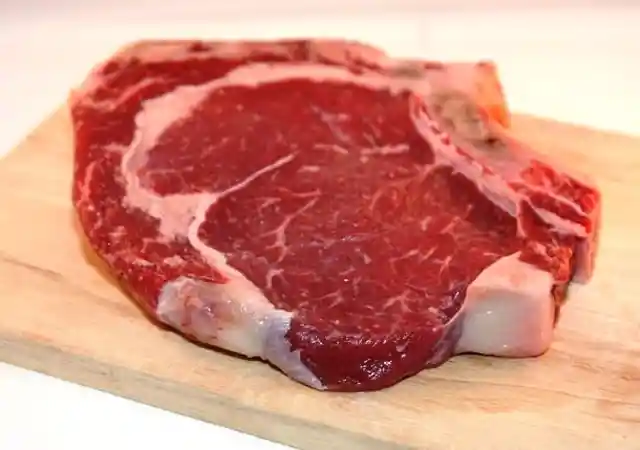
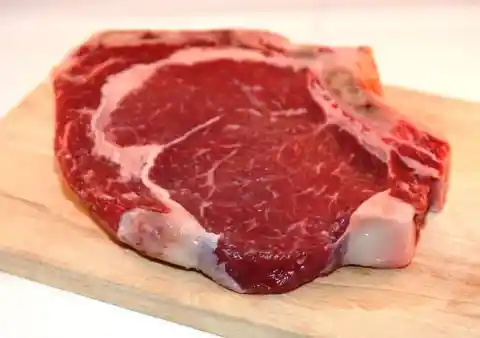
Similar to feeding your dog raw eggs, feeding them raw meat is exposing them to dangerous bacteria that could be extremely poisonous for them. For instance, back in 2014, a whopping 40 dogs died in the UK after consuming raw meat. The uncooked flesh caused kidney failure and skin lesions.
French Fries
French fries are one of our guilty pleasures that we can have every now and then without any significant complications. However, these tend to be dripping with saturated (and sometimes trans) fats, and coated in an unhealthy layer of salt, basically fat and sodium overload.
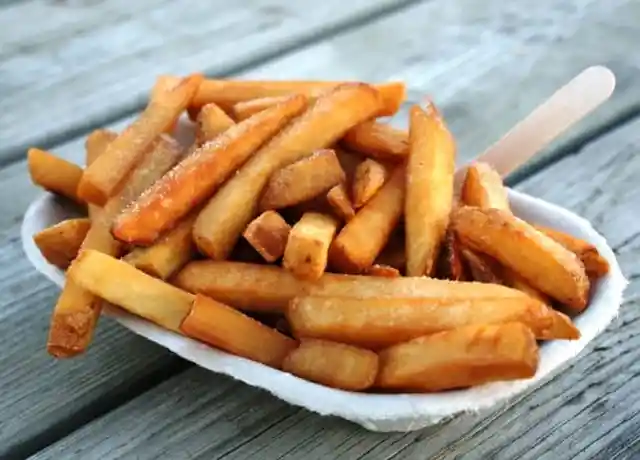

While humans can take on some extra fat and sodium, french fries can be quite deadly for your dog, which is why they should be strictly restricted from their diets. The amount of salt and other unhealthy additives is just a terrible idea to introduce to your pup's stomach and if you want to avoid high blood pressure, this advice also applies to you!
Mushrooms
While mushrooms are very healthy for human beings, the situation is a little bit tricker for dogs. While most mushrooms are non-poisonous, we cannot disregard the possibility of getting our hands on an edible mushroom that is actually poisonous.
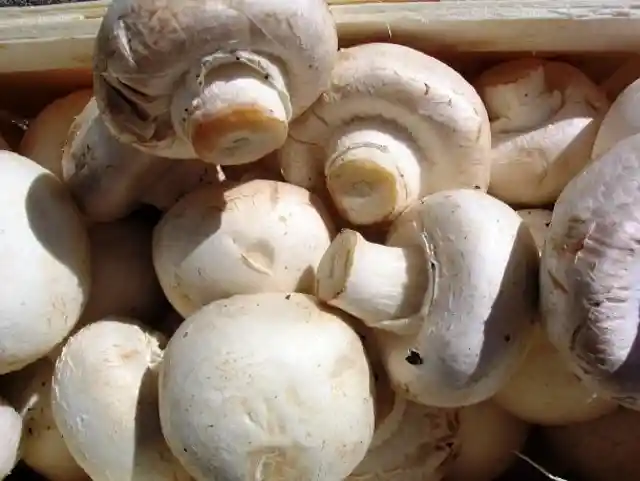

If you are sure that the mushroom you picked is non-poisonous, you should also restrict the amount that you decide to feed your dog because giving it too many might cause its stomach to have trouble digesting. Furthermore, if you do decide to give it mushrooms, make sure that it is served plain.
Human Medicine
Americans are known for popping in a pill when the situation isn't very dire, otherwise known as self-medicating. Well, please don't self medicate your dog. The "positive" reaction that a human might have to prescription drugs isn't a good example of what would happen to your dog if it consumed that same exact pill.
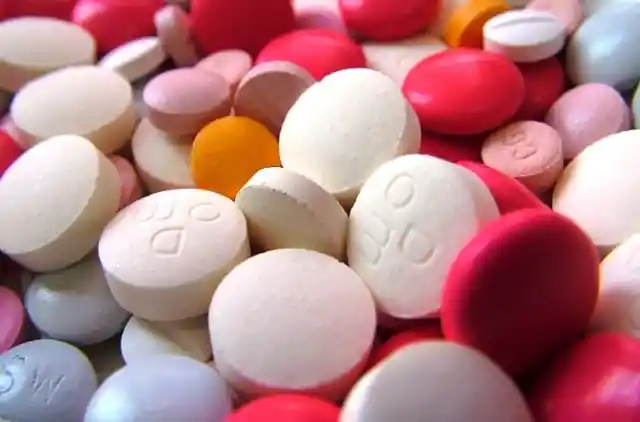
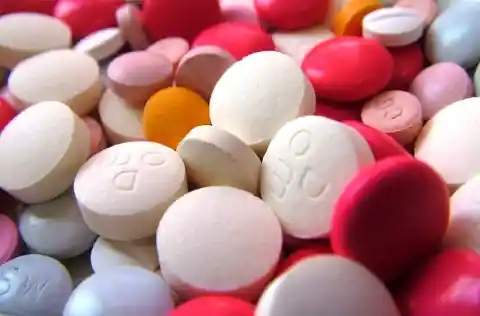
In fact, some of the pills we can safely consume could end up being poisonous for our dogs. You wouldn’t feed random pills to your children without a professional’s advice, right? Well, the same goes for dogs. They shouldn’t be fed any over-the-counter medication unless a veterinarian specifically instructs you to do so.
Spices
For human meals, adding some spices to your dishes can take your food to a whole other level. However, whether it's curry powder, paprika, cumin or turmeric, it's better to keep these out of your pup's diet. While some herbs and spices don't harm your dog, unless you know specifically which ones, it's best advised to not take the risk.
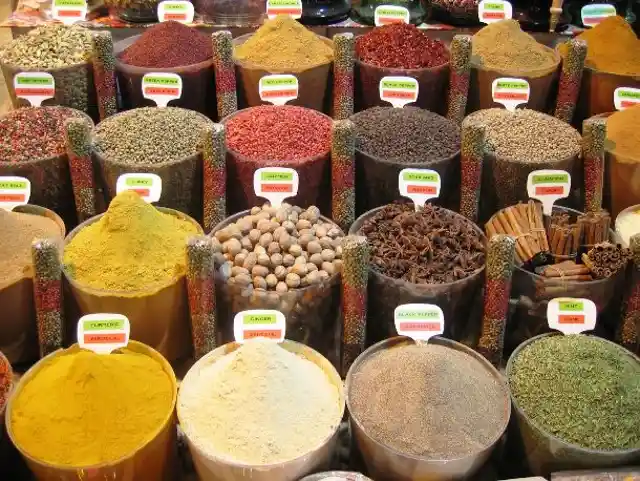

While these seasonings might add great flavor to your dish, make sure that your dog never eats these: nutmeg, cinnamon, pepper, pennyroyal oil, and others. However, if you really want to serve your dog a healthy cooked meal and want to add some spice, some of the safer ones include basil, caraway seeds, flax seeds, and ginger.